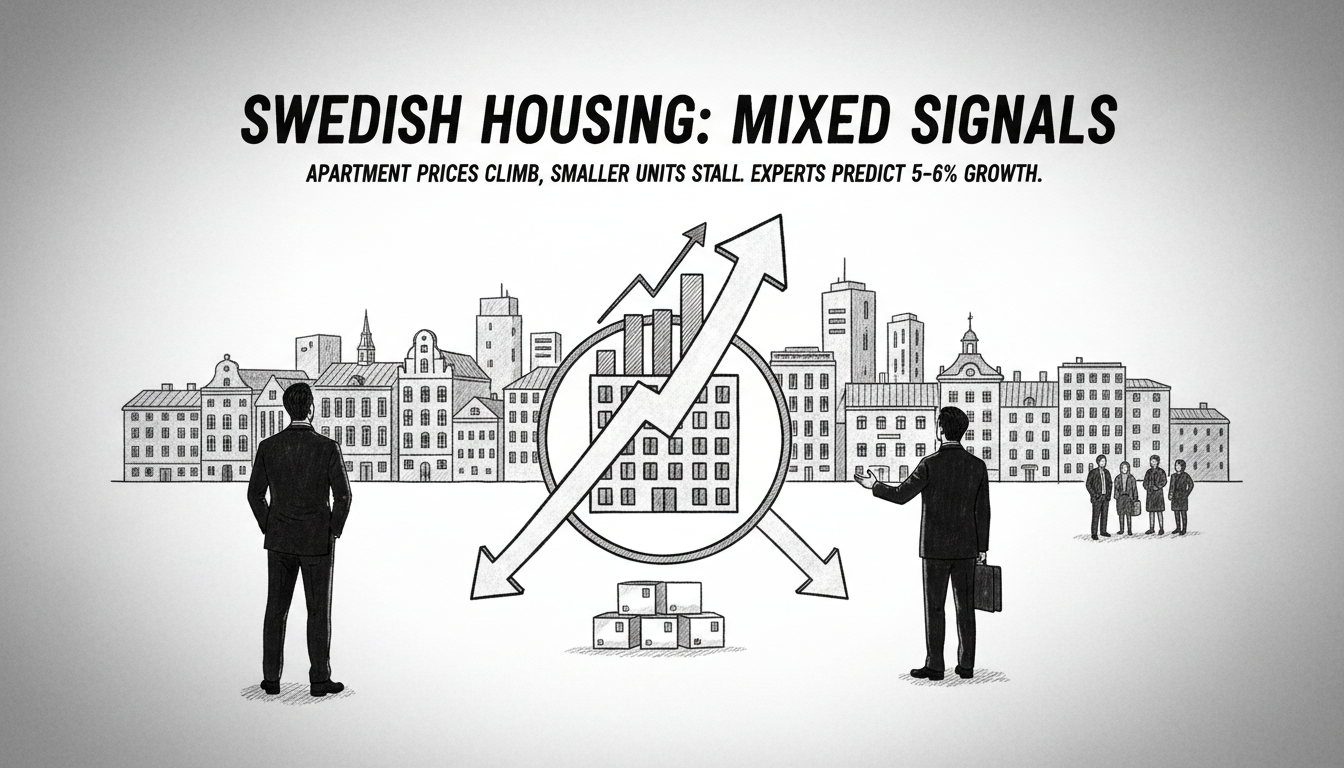Sweden's housing market presents a complex picture with apartment prices climbing for the second consecutive month. Prices increased by 1.7 percent compared to the previous month, according to national real estate statistics. The trend appears strongest in central Stockholm, where prices jumped 3.3 percent monthly and showed a slight annual increase of 0.2 percent.
Real estate executives express cautious optimism about the market's direction. Erik Wikander, CEO of a major Swedish real estate firm, describes the situation as contradictory. 'I have mixed feelings about these numbers,' he said in a statement. 'Apartment prices are rising, but we're seeing fewer transactions compared to last October.'
The market recorded 16,500 apartment sales this October, representing a 4 percent decrease from the previous year. Smaller apartments continue to face particular challenges. 'The fundamental problem remains the same,' Wikander explained. 'We have a very large supply of one and two-room apartments where sales aren't taking off. People are hesitant to make moves.'
This hesitation stems from many buyers purchasing during the market peak several years ago. These homeowners are waiting to see if prices will increase further before selling. 'Their down payment for their next home is at stake,' Wikander noted, 'which explains the continued sluggishness in this segment.'
Despite these challenges, real estate professionals report increased activity at property viewings. Marcus Svanberg, CEO of another major real estate company, observed changing patterns in bidding behavior. 'We first noticed more bidding wars in central Stockholm,' he said. 'Previously, buyers sometimes even negotiated discounts from asking prices. Now we're increasingly seeing premiums above asking prices, which drives up overall prices.'
The Swedish Central Bank's decision to maintain unchanged interest rates coincides with growing buyer confidence. Svanberg attributes this to reduced economic uncertainty, particularly regarding trade tensions. 'Looking ahead to next year, tax reductions will help the market,' he predicted. 'We forecast prices will increase by approximately 5-6 percent.'
This mixed market situation reflects Sweden's unique housing dynamics. The country's extensive rental regulations and specific mortgage requirements create distinct market patterns compared to other European nations. International observers should note that Sweden's housing market often moves differently from global trends due to its strong tenant protections and specific financing structures.
The current situation suggests a gradual market normalization rather than a dramatic boom. While premium properties in desirable locations attract competitive bidding, the broader market faces continued adjustment from previous peaks. This creates opportunities for strategic buyers but requires careful navigation of varying conditions across different property types and locations.

